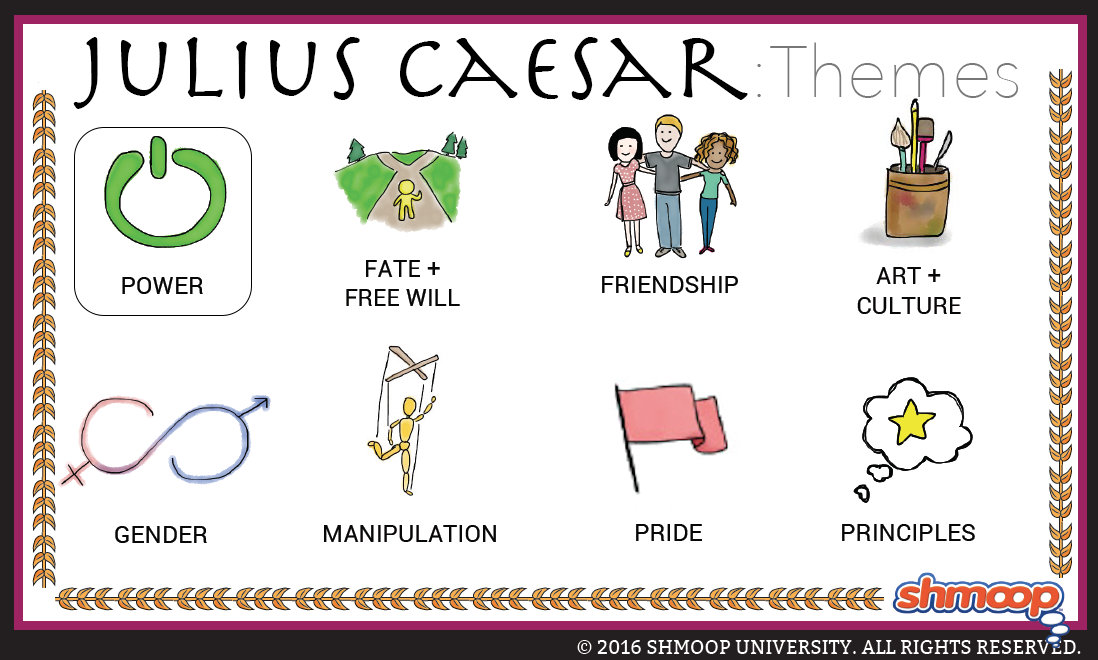 (Click the themes infographic to download.)
(Click the themes infographic to download.)
When it seems evident to the conspirators in Shakespeare's play that Julius Caesar is headed for absolute power, he becomes a threat to the ideals and values of the Roman Republic. In other words, he's voted off the island. They assassinate Caesar before he can be crowned king. The irony is that Caesar's death results in civil war. As two factions with questionable motives grab for power, chaos ensues and the Republic is never the same again. See what happens when you don't plan ahead?
By dramatizing the historical circumstances surrounding Caesar's assassination, Shakespeare asks a series of questions relevant to his 16th-century audience and readers today: How should cities and countries be governed? What makes a good leader? What happens when a political leader's power is unchecked? What happens when the leader dies without a suitable replacement lined up? And who really did let the dogs out?
Questions About Power
- What kind of leader is Julius Caesar? The conspirators say he's a tyrant headed for absolute power. Is there evidence in the play to support this? Is Caesar really a threat to the Roman Republic? Why or why not?
- Are the conspirators justified in their assassination of a political leader?
- Why does Brutus join the conspirators? Is it simply a matter of saving Rome from Caesar's supposed tyranny, or does Brutus have something else to gain?
- Does the play ever portray an ideal leader?
Chew on This
Although Julius Caesar is certainly arrogant and power hungry, there's no clear evidence in Shakespeare's play that suggests he's a tyrant when he's assassinated. Rather, the conspirators see in Caesar a potential threat to Rome and eliminate him before his ambitions can be realized.
Shakespeare's portrayal of the chaos that ensues after Caesar's assassination dramatizes a major late 16th century political concern – what would happen when England's aging monarch (Queen Elizabeth I) died without an heir to the throne?